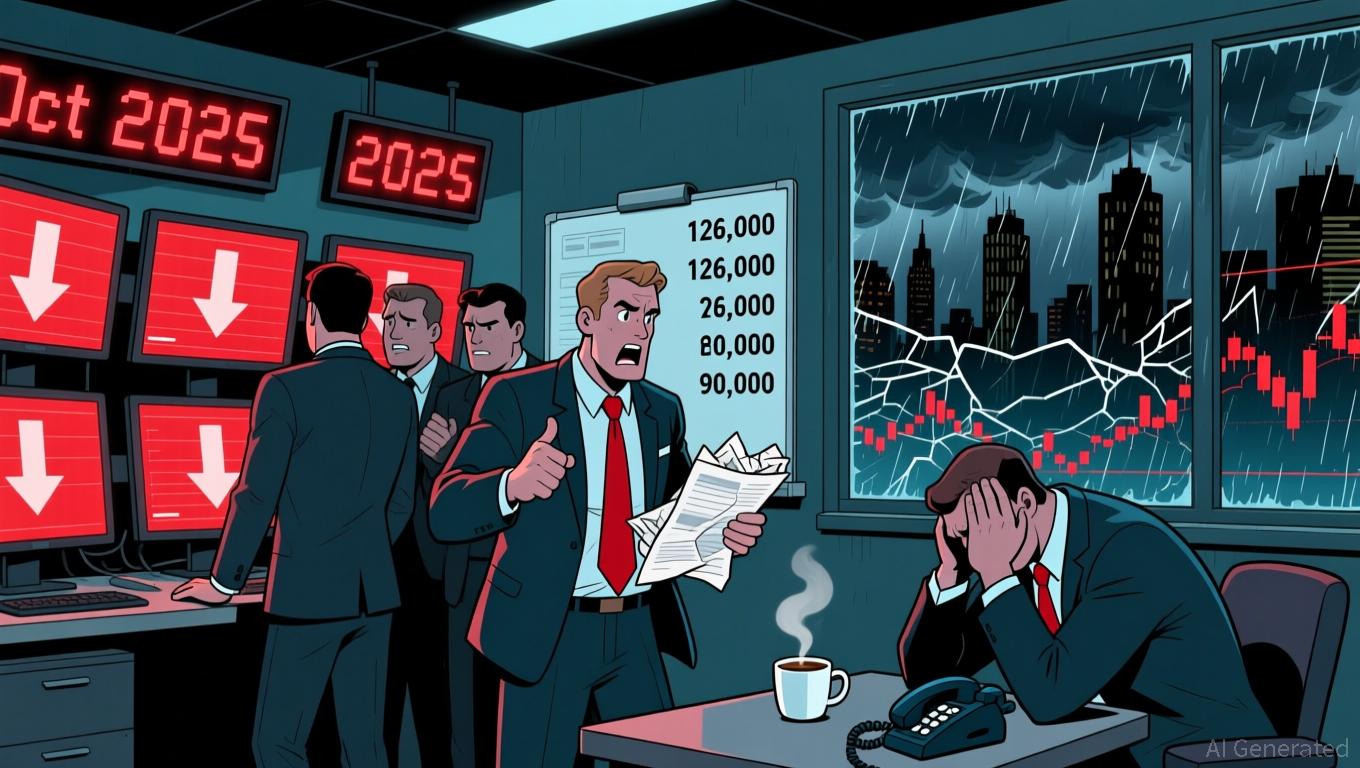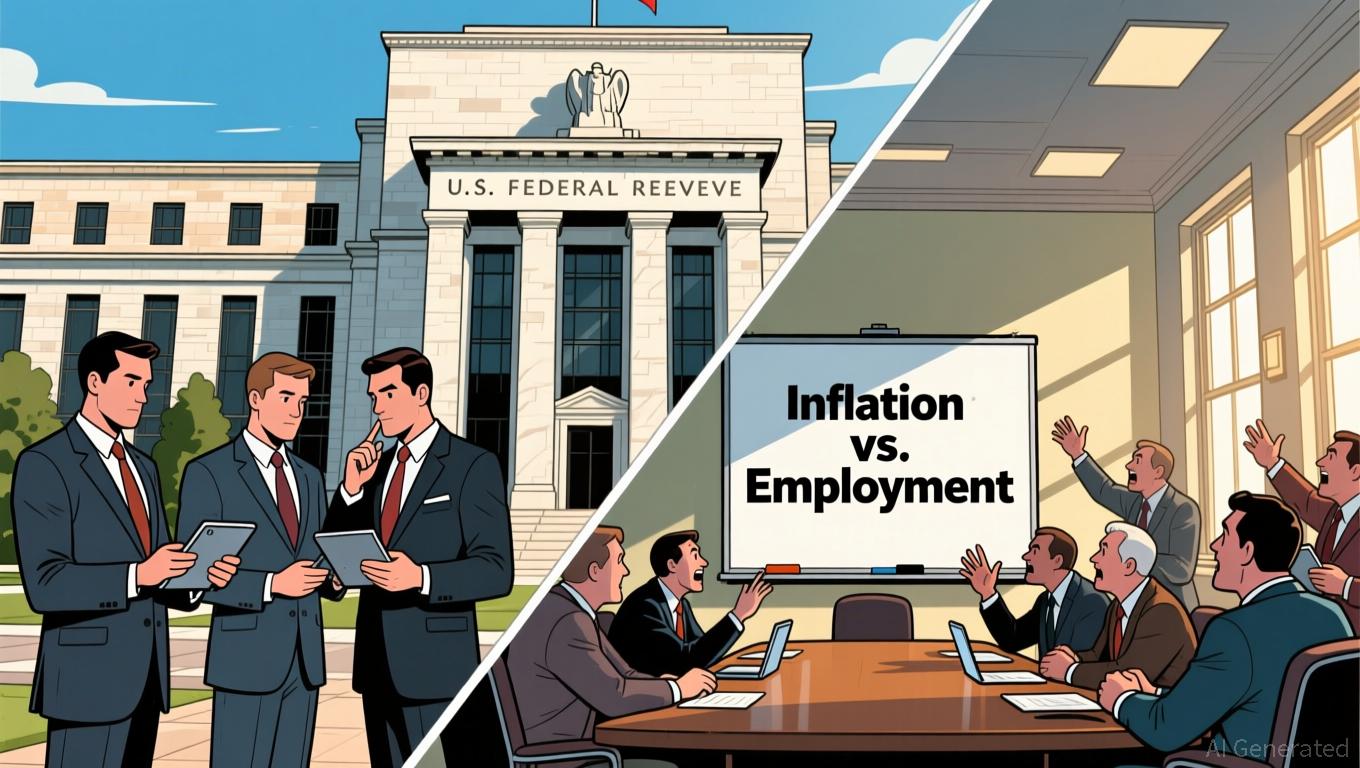Bitcoin Updates: Institutions Remain Wary Amid Regulatory Turbulence—Will Bitcoin Reach $80K?
- Bitcoin fell below $90,000 in late 2025 amid regulatory scrutiny, macroeconomic uncertainty, and institutional outflows, losing 26% from its October peak. - Record $523M ETF outflows and $19B leveraged liquidations highlight market fragility, while Harvard's $443M IBIT allocation signals cautious institutional interest. - Fed ethics scandals and delayed rate cuts (now 46% chance in December) exacerbate uncertainty, alongside Japan/Brazil's regulatory headwinds raising compliance costs. - Analysts debate
Bitcoin has continued to experience downward momentum, dropping below $90,000 in late November 2025 as a result of increased regulatory attention, global economic instability, and changing attitudes among major investors. After reaching a high of $126,000 in October, the digital asset has shed more than 26% of its value within a month, sparking debate over whether this marks a short-term pullback or the onset of a more prolonged bearish trend.
The recent decline has been intensified by
Regulatory shifts have added further complexity to the situation.

Regulatory challenges have also emerged in Japan and Brazil, with Tokyo now classifying 105 cryptocurrencies as financial instruments and Brasília considering a tax on stablecoins. These regulatory changes are likely to increase compliance costs for trading platforms and could suppress trading activity in important markets. Meanwhile,
The next few weeks will be shaped by
Disclaimer: The content of this article solely reflects the author's opinion and does not represent the platform in any capacity. This article is not intended to serve as a reference for making investment decisions.
You may also like
Fed Faces a Test of Trust: Managing Divided Rate Views and Ethical Controversies
- Fed's October rate cut revealed 10-2 policy split, balancing inflation risks against labor market weakness amid 2%+ inflation. - Ethics scandal emerged over Kugler's stock trades during blackout periods, triggering IG investigation and accountability concerns. - Political tensions intensified as Kugler's resignation accelerated Trump-aligned Miran's board seat, complicating policy governance. - December meeting faces uncertainty: some advocate 25-basis-point cut for labor support, while others warn again

Ethereum News Today: Ethereum Faces Liquidity Battle: Bulls Hold the Line at $3,100 While Bears Anticipate Further Drops
- Ethereum (ETH) struggles near $3,100 as traders monitor key liquidity zones amid 11% 7-day losses and cautious market sentiment. - ETF outflows ($74M for ETH, $373M for BTC) and institutional caution highlight waning investor confidence and liquidity challenges. - Technical analysts debate $2,904–$2,916 "buy zone" potential vs. bearish risks below $3,450, with consolidation phases expected before recovery. - Fed policy uncertainty (46% Dec rate cut chance) and EIL upgrades offer limited optimism as bears

Gundlach Cautions That Inflated Markets and Unstable Loans Could Trigger a Financial Crisis
- Jeffrey Gundlach warns U.S. equity market is "least healthy" and predicts private credit crisis due to "garbage loans" and weak underwriting. - He advises 20% cash allocation, reduced AI/data-center speculation, and compares private credit growth to 2006 subprime crisis, citing recent firm failures. - Recommends rebalancing portfolios: 40% global equities, 25% non-dollar bonds, and 15% gold as hedge amid dollar weakness and inflation. - Criticizes AI mania as "dot-com bubble" repeat, with NYU's Damodaran

Mexico Thwarts U.S. Cartel Raids, Cites 1848 Lesson on National Sovereignty
- Mexico's President Sheinbaum rejects Trump's cartel strike proposal, invoking 1848 sovereignty lesson to defend national autonomy. - Tensions escalate as Mexico removes U.S. contractors' "Restricted Area" signs near Rio Grande, citing border disputes and environmental concerns. - Trump's hardline drug rhetoric clashes with Mexico's sovereignty stance, highlighting strained U.S.-Mexico relations over border security and governance. - Sheinbaum balances U.S. cooperation with sovereignty defense, while Trum
